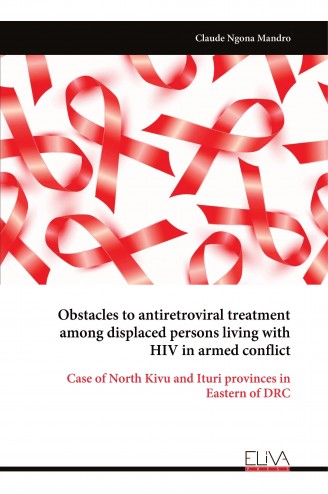
Obstacles to antiretroviral treatment among displaced persons living with HIV in armed conflict
€ 60
Descripción
The effectiveness of antiretroviral therapy (ART) depends on good adherence. Although treatment is increasingly available to the general population, refugees and internally displaced persons (IDPs) face many challenges in obtaining ARVs and maintaining optimal adherence. A mixed-method study (quantitative and qualitative) was conducted from April 2021 to June 2023 in the provinces of North Kivu and Ituri in Eastern DRC. Displaced PLHIV and those from the host population; service providers involved in the care of PLHIV; officials from the National HIV/AIDS Control Program and technical and financial partners in the fight against HIV were surveyed on the obstacles to ARV treatment for displaced people in eastern DRC. The main reasons for not taking ART were: forgetfulness, lack of food, occupation and travel, distance between camp and hospital of more than an hour, patient dissatisfaction, opportunistic infections, stigmatization, lack of money for transport, non-membership of a support group and lack of knowledge of supply points. With regard to ARV supply, the main difficulties mentioned were: the absence of an ARV supply circuit for displaced people in their respective areas. The strategy proposed to make ARV treatment available was to supply structures close to the camps with ARV drugs. Forced displacement of people living with HIV encourages non-adherence to antiretroviral treatment. Lack of money for transport, food insecurity, stigmatization, lack of knowledge of supply points, non-membership of a support group and the non-existence of an appropriate ARV supply circuit among displaced people, which cause ARV stock-outs, have been identified as obstacles to treatment compliance. The fight against food insecurity, the financial autonomy of PLHIV, the intensification of HIV awareness campaigns, membership of a support group, the establishment of an information circuit between health zones and the inclusion of ART among the drugs subject to rapid assessment for displaced people, and the supply of ART to structures close to the camps are all recommendations for improving ART adherence.
